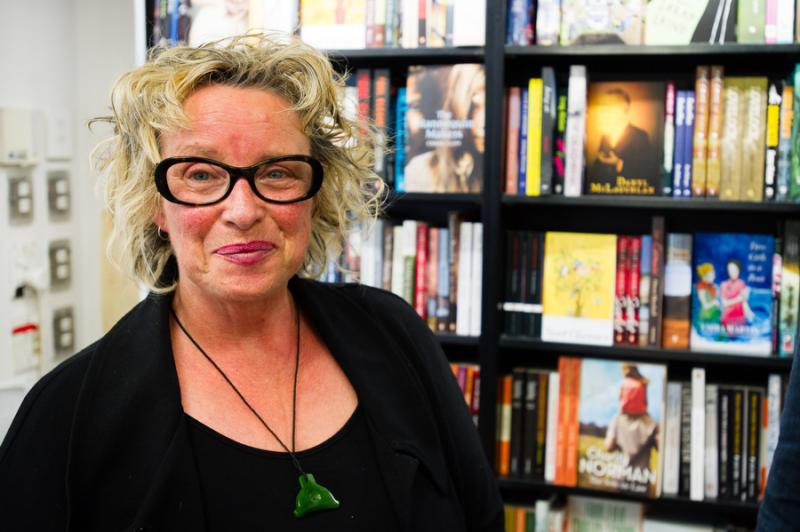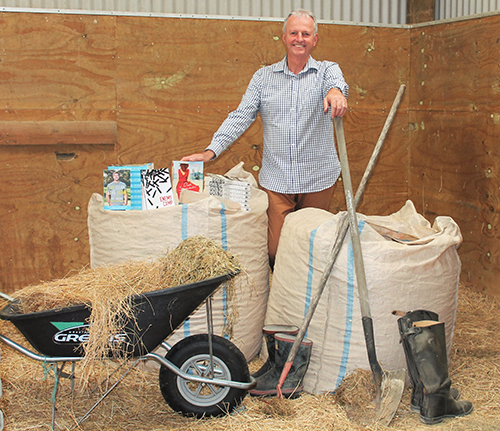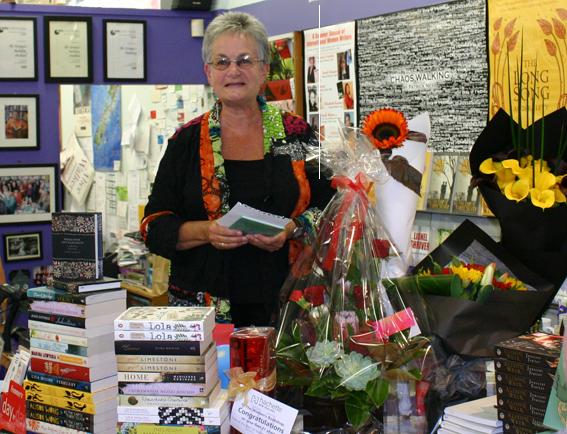3:00 PM, 4 May 2017
by Marcus Greville
There is hardly a better battleground for analogue vs. digital than bookselling: the changes have been continuous and paradigm-changing in terms of the way that bookshops operate. Not too long ago I was telling another bookseller about the monthly CD-ROMs that updated our bibliographic database; in response I got an amused smile and the comment, ‘Nice, granpaw’. I recall I gave a similar response to tales of microfiche in the 90’s.
As technology and change have swept through all forms of business, the selling of bound paper and ink has had to keep pace with innovation while trying to adhere to the core joys of books and bookselling. Has anything been lost during that time? How much change has there been in our industry and is bookselling as satisfying as it always has been?
The Read talks to industry stalwarts Carole Beu from The Women's Bookshop (28 years in bookselling), Tilly Lloyd from Unity Books Wellington (32 years in bookselling), and David Hedley from Hedley's Bookshop in Masterton (40 years in bookselling). We discussed fun, change, technology and the future.

So much more fun back in the day
Was there more fun to be had back in the day? 'Too right' says Tilly Lloyd (pictured above, copyright Mark Tantrum), 'Imagine what we got up to in 1992 while we waited twelve minutes for dial-up to deliver four items in a Booker Prize search.' Which is as close to epic tales of bookseller debauchery as the interviewees got.
David Hedley says, 'I rarely look back except to learn from my mistakes – and sometimes to be sentimental.' He talks of that continual search for those ‘rare, transcendent titles’ that make 'the thrill of the chase so rewarding.' Carole Beu remembers the collegiality between booksellers and publishers, 'I loved the time "back in the day" when booksellers & publishers were a joint organisation. Great exchanges took place… and lots of useful discussions happened informally. We all seem to have got so busy in recent years!'
We were curious to hear what changes stood out in their respective careers. Lloyd quickly identified the deep logistical moment when the multinational suppliers moved distribution to Australia. Beu thought the organisational change of booksellers and publishers’ separating was highly significant, and Hedley (below, promoting Yarns in Barns last year) commented on technology, noting the influence of the Internet and television, but focused on the overall evolution as being more important.

The effect of technology on bookselling
Has technology changed the way bookselling is practiced? And has technological speed made life simpler? The consensus seems to be that the core remains, regardless of change; Hedley sums up this view succinctly and with a dash of wit, 'Technology has not changed my approach to bookselling it has just meant I have to work harder.'
Lloyd thinks that the cultural and commercial viability of Unity is maintained through core bookselling, but 'the technology supporting (and driving) our professional work has evolved massively in 30 years. We like and need our big systems and comms, but I constantly see the old interpersonal arts of bookselling in action and I welcome that.'
Beu (pictured below) certainly recognises the increased time pressure change has brought, 'I find myself constantly saying "I don’t have time".' But she remembers when the broadening web and in-store tech capacity really caught her eye, 'A eureka moment for me regarding technology was when I saw Warwick demonstrating Circle System at a Booksellers Conference many years ago… I was blown away. I ditched the old computer system and have been using Circle ever since.'

All three booksellers agree that the work has gotten harder, but speed has made a huge difference in how effectively they can deliver books into their customer’s hands. Despite the work, it seems to have augmented their passions and desire to thrive. Lloyd captures the spirit of each of our interviewees when she says, 'Bookselling is easier in the sense that a well-resourced bookseller with connective charm can sell better than a bookseller with only one of those attributes. Customers have massive (competing) data at their fingertips so it’s important that our bibliographic and inventory management systems purr away in the background. Ironically, as I write this I am out of my mind because our website has been down for 6 hours!'
The next generation
Looking forward, all three see strong potential in the generations following them, and hope they can help shape and support them into the future. Beu and Hedley have both noticed a resurgence of young talent lately and want to encourage it. Beu expressed her pride in watching Mary-Liz Corbett move on from the Women’s Bookshop to run her own business, 'the wonderful Matakana Village Bookshop', and she sees 'lots of keen young booksellers around' and loves getting a chance to work with them when collaborative chances present themselves.
Regarding the future, Lloyd looks deep and hesitates to make assumptions, 'I just can’t quite see how "the street" is going to pan out in the next 30 to 40 years. It’s hard to visualise the world for indie booksellers at peak neo-liberal capitalism/Amazon.' Yet Lloyd (a practising optimist between 11am and 8pm) sees bookshops as shaping and shaped by the booksellers within them, with management supporting that while their eyes are on the horizon, because 'won’t there always be energetic, brainy, funny, ethical, collectively concerned and culturally dextrous book-lovers? Some of them will surely be attracted to work as a "merchant" even if the role of bookselling alters dramatically.'
Article by Marcus Greville